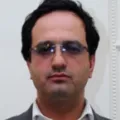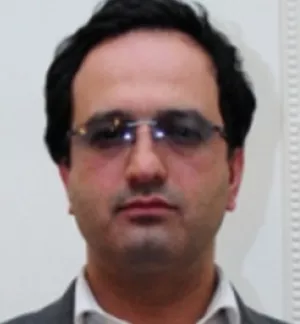Note
The Farsi version of this op-ed was first published in Tabnak and then reprinted as an editorial note in Arman Daily and other Iranian media.
The success of the future nuclear talks between Iran and the P5+1 Group, and especially the European Union (EU), directly depends on strengthening "confidence-building" measures between the two parties. In this context, the EU returning to its independent and mediatory role in the negotiation process will provide a new opportunity for increasing mutual confidence and thus provide support for the diplomatic approach and achieving a sustainable solution.
On the one hand, the EU failure to resolve Iran's nuclear issue in 2003–2005 was mainly due to the lack of understanding of the role and importance of the nuclear program as a national and strategic program in Iran's domestic and international politics. While on the other hand, the absence of a comprehensive strategy among the EU trio—Britain, Germany, and France—in dealing with Iran during the negotiations process also contributed decisively to the failure. As a result, not only did Iran lose trust in the EU's ability to facilitate genuine progress in the course of nuclear negotiations, but gradually and inevitably the EU was forced to leave its independent and mediatory role in Iran's nuclear dossier, take a tough line, and finally act in concert with U.S. policy.
The proximity of the EU policy to the U.S. policy which basically ties Iran's nuclear program to the issues of proliferation, weaponization, and deterrence has further complicated and politicized Iran's nuclear program. Moreover, it has resulted in its referral to the UN Security Council and the adoptation of an aggressive UN Resolution 1929 being passed against Iran. These developments have damaged both parties' interests, including decreasing bilateral trade and undermining diplomacy in pursuing resolution of the nuclear issue.
The weakening of the EU role in negotiations has led Iran to seek more reliable, independent, and mediatory actors, resulting in Iran's close cooperation with Turkey and Brazil. Benefiting from a "third force" and independent player to outweigh Iran's international politics has a historical background in the conduct of Iran's foreign policy. For instance, Iran benefited from the U.S. independent and mediatory role to improve its financial and commercial affairs, thus balancing the increasing interference of Britain and Russia in Iran's domestic affairs in the late 19th and early 20th centuries. During the 1970s, the Shah's regime established closer ties with China and Russia as a countervailing force to its relations with the West. It was in this context that Iran sought a role for the EU to balance intense U.S. pressure on Iran in 2004. Subsequently, the EU's loss of its independent role brought Iran closer to Turkey and Brazil, while Iran is still interested in benefiting from China and Russia's role in the negotiations despite their support for the sanctions resolution against Iran.
Of course, Iran's new policy was welcomed by these new rising actors, Turkey and Brazil, who want to play an independent role on the international scene. In this regard, the Turks moved to fill the vacuum and seize the opportunity to become a more reliable alternative for Iran. By Iran's nuclear program, an important international issue, Turkey could emerge as a global and strategic actor. Turkey appreciated this historical moment and played the mediatory role between Iran and the United States instead of the EU. In fact, Turkey sought to play the role that the EU was incapable performing in the process of confidence-building in recent years.
The peak of Turkey's independent role was when it opposed the Resolution 1929, the unilateral sanctions against Iran and more importantly, refused to backpedal with respect to its stance on the regional and international scenes, thus assuring Iran’s confidence. For instance, despite the many sanctions against Iran, economic exchanges between Iran and Turkey are expected to reach 30 billion dollars from the present 10 billion in the near future.
Beyond these concrete and trust-building measures, Iran and Turkey share fundamental mutual interests in issues related to their nuclear policies as well as resolving regional crises. This complementary role increases the existing confidence between the two parties. On the nuclear issue, Iran and Turkey have similar positions on all-out nuclear disarmament (Israel's disarmament) and the peaceful use of nuclear energy in the Middle East. In the latter case of course, Turkey supports Iran’s nuclear policy because of its own goal of acquiring nuclear energy. Regarding the regional crises in Iraq, Afghanistan, Lebanon, and Palestine, Iran and Turkey's positions are getting closer daily. For example, both countries want foreign forces to withdraw from Iraq and Afghanistan and support the institutionalization of Hamas and Hezbollah's political role in regional politics. They also strenuously disagree with Israel’s repressive policy towards the Palestinian people in the Occupied Territories.
The weakening of the EU's role as an independent and mediatory player in the nuclear talks, however, beyond economic losses, could bring negative strategic and political consequences for the EU's status in the entire Middle East, which could in turn damage the region's interests. The new economic sanctions will preclude the opportunity of investment by the EU in Iran's gas and oil sectors, thus decreasing trade and commerce between the two—a shift of policy that provoked a sharp rise in China's activities in those sectors. In the political and strategic domains, the EU's failure in the nuclear negotiations was the EU's first experience in dealing with a significant strategic issue in the Middle East with a global dimension. This development undermines the European approach to regional cooperation such as cooperation with regional countries in the context of NATO for resolving issues which continue to arise in Afghanistan and Iraq.
The nature of EU political, strategic, and economic interests in the Middle East and, of course, in dealing with Iran is different from that of the United States. The United States has regional and international political-security interests that conflict with Iran. In the U.S. strategic perspective, reinforcing Iran’s regional role by pursuing its nuclear program could challenge U.S. control over political, security, and even economic trends in the region. The United States is geographically distant from the region and, due of its lack of diplomatic relations for the past 32 years, does not possess major economic interests in Iran. From this perspective, perhaps the United States's willingness to await the results of sanctions on Iran is greater than that of the EU.
In contrast, the EU has less political and strategic conflict with Iran and is not in effect trying to deny Iran its regional role. Geographically, Europe is closer to Iran and the Middle East, and its approach and policies in the region are based more on resolving regional crisis, preventing extremism, combating drugs, and eliminating ethnic violence and migration as result of internal conflict, etc. The EU failure in resolving these crises will result in these tensions being extended to Europe’s borders. From this perspective and with an accommodating and interacting policy, the EU attempts to settle these issues through cooperation with regional actors like Iran. In this respect, the EU cannot wait for long to see whether the "sanctions instigate negotiations" policy of the United States can change Iran's nuclear policy or not. In other words, economic, cultural, and political-security reasons will force the EU to engage with Iran.
Despite the distrust which has surfaced between Iran and the EU, Iran still wants the EU to play its independent, mediatory, and accommodating role to strengthen the diplomacy in the nuclear talks. The importance of the EU to Iran is due to a number of reasons: the proximity of Europe to Iran, the Iranians respect for European science and technology, the history of cultural relations and the Iranian diaspora living in Europe, and finally the mutual economic and commercial benefits open to both parties. Indeed, relations between Iran and Europe are beyond merely the Iranian nuclear issue.
Lastly, strengthening an independent European approach in the political-security and strategic issues of the region will benefit all concerned parties: the EU, the Middle East, and Iran. But that requires strengthening the EU’s independent position in the current conflict between the United States and rival regional players, including Iran. The future nuclear talks between Iran and the P5+1 Group will provide a great opportunity for the EU to return to its traditionally independent and mediatory role to use diplomacy to reach a sustainable solution for Iran's nuclear dossier. This policy would build confidence between both sides that could even open a new path to further cooperation between Iran and the EU in the context of Europe's regional activities, including NATO's activities in the Middle East.
Statements and views expressed in this op-ed are solely those of the author and do not imply endorsement by Harvard University, Harvard Kennedy School, or the Belfer Center for Science and International Affairs.
Barzegar, Kayhan. "The European Union and Future Nuclear Talks." Belfer Center for Science and International Affairs, Harvard Kennedy School, December 4, 2010.


